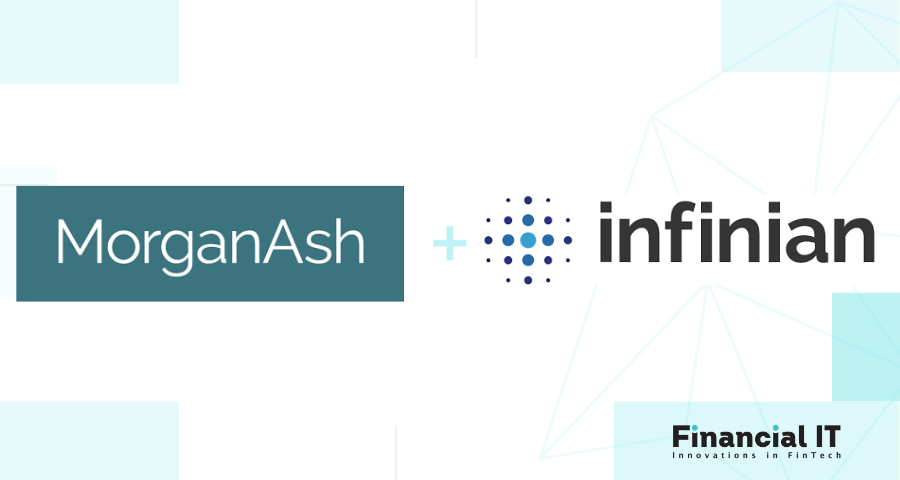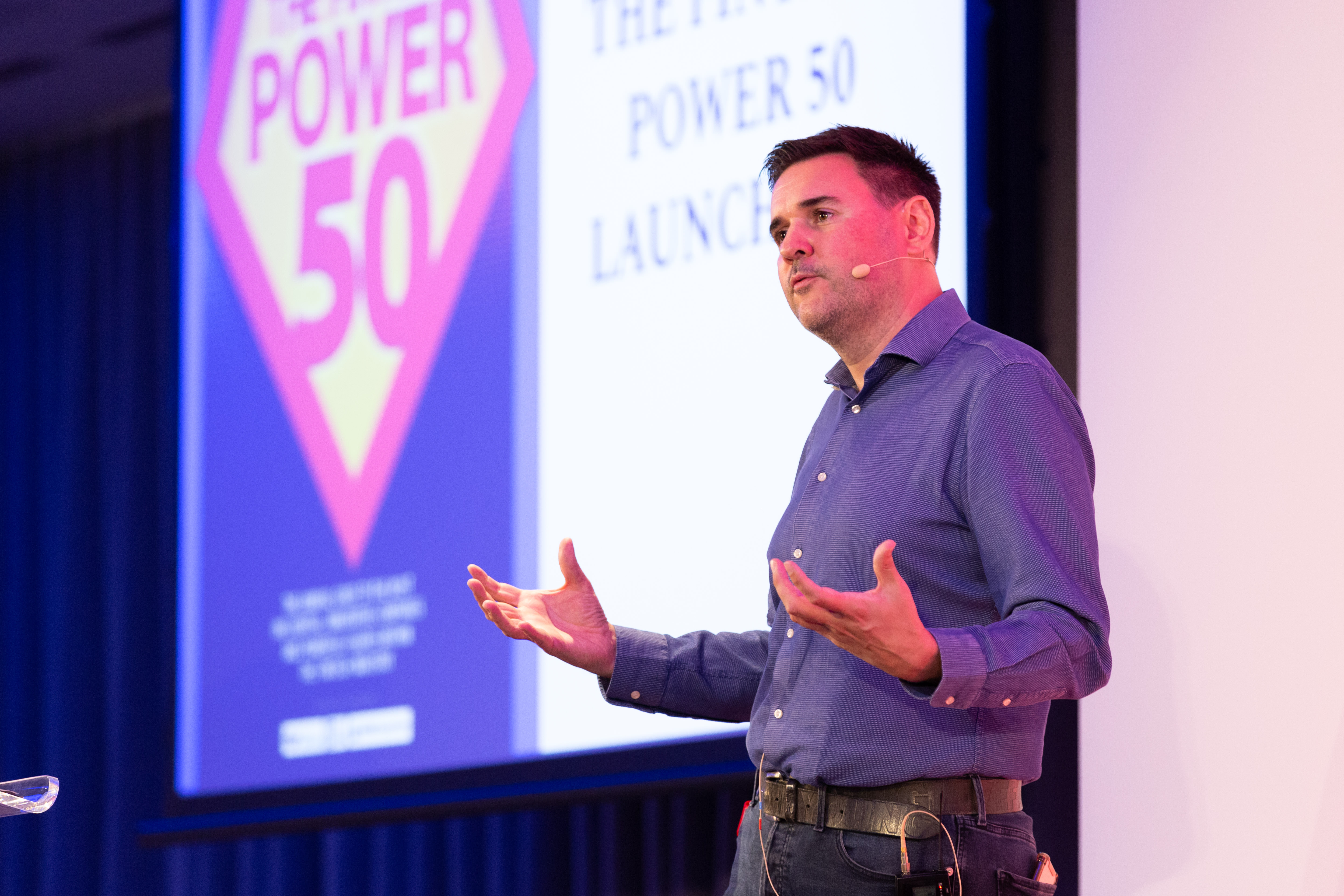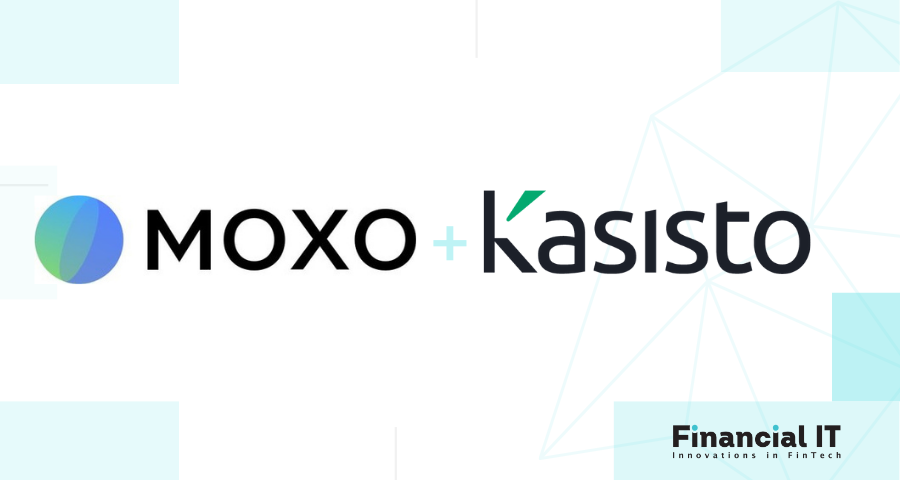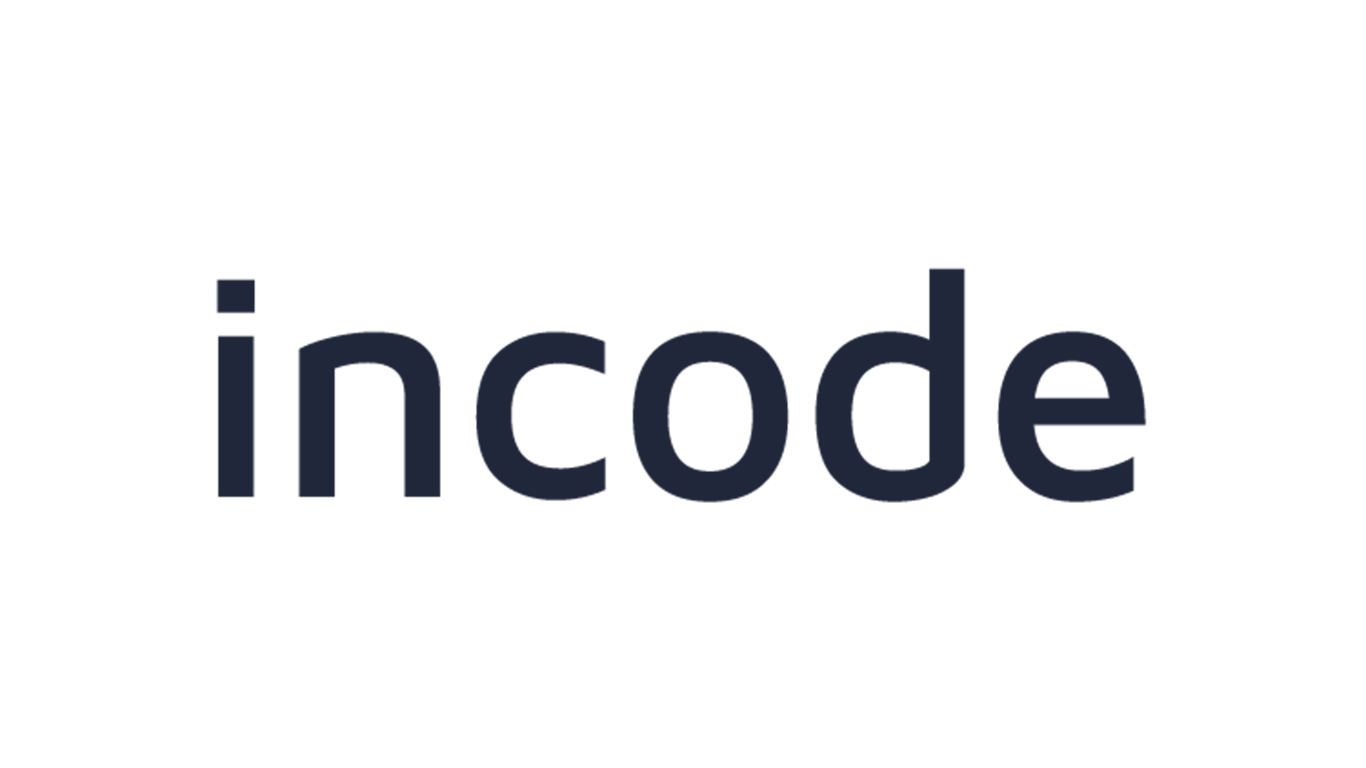Published
- 04:00 am

MorganAsh, the specialist data supplier allowing firms in the financial services sector to manage consumer vulnerability and meet regulatory requirements, today announced a new partnership with Infiinian. Its new partner, Infinian, is a leading provider of lending insights and data analytics for the consumer finance sector.
The new partnership will mean that financial services firms are able to gain a better understanding of the characteristics of individual customers so that they can identify their vulnerabilities more accurately. This will become increasingly important with the Financial Conduct Authority set to tighten regulatory requirements on firms to identify and understand vulnerable customers.
In April, MorganAsh launched its MorganAsh Resilience System (MARS), which provides an objective and easy-to-understand ‘resilience rating’ similar to a credit rating. It has been designed to enable firms to evaluate the vulnerability of individual customers more easily and consistently. The system and its rating methodology allow financial services firms to create more robust solutions based on a personalised understanding of the circumstances of individual customers.
Before the launch of MARS, there was no comparable methodology within financial services to assess individual vulnerability in a reliable and consistent manner.
The new partnership will allow MARS to work with Infinian’s data hub, which allows companies to interpret consumer financial data to improve decision-making. Infinian already works with a range of firms, including debt collection agencies, the gaming vulnerability sector, and risk and fraud agencies.
MorganAsh also recently enhanced its MARS tool by linking it with the Vulnerability Registration Service (VRS), which allows consumers to register themselves as vulnerable. The VRS draws on information from a range of organisations, including financial services suppliers, local authorities, utilities and charities.
The founder and managing director of MorganAsh, Andrew Gething, said: “It is important that organisations obtain accurate information on consumer characteristics so they can identify vulnerabilities correctly. We combine data directly from consumers, Infinian and the VRS to build a picture of the consumer’s characteristics, all expressed within our objective resilience rating. This not only enables organisations to understand their customers and take appropriate actions but also provides a consistent record of events that are required for Consumer Duty regulations and can be audited.”
The commercial director of Infinian, Ben Allott, said: “Infinian is a leading provider of lending insights and data analytics on the consumer finance sector. We offer unparalleled depth and coverage on the individuals associated with consumer lending, helping clients identify vulnerable consumers and stay ahead of the curve. We are delighted to begin working with MorganAsh, who share our goal of responsibly improving the consumer decisioning of individuals.
“For MorganAsh, we will use vulnerability and affordability analytics to identify high-risk individuals and set up early warning alerts to mitigate risk and comply with regulation, using the MorganAsh MARS tool.”
Related News
- 06:00 am

The Fintech Power 50, a list of the 40 most innovative companies and 10 visionary personalities shaping the financial services industry, has been revealed for 2022.
The exclusive annual program acts as a hub for driving change and creativity in the financial services industry, helping the sector innovate and grow.
After more than 1,200 companies were nominated and over 18,000 votes cast, this year’s chosen 50 were revealed live on stage at Fintech Week London – the city’s biggest tech and finance event – on Monday 11 July 2022.
Announcing the final list, Mark Walker, co-founder and Chief Operating Officer of The Fintech Power 50, said: “The Fintech Power 50 annual list acts as a much-needed reminder of all the great things we are achieving in the world of financial technology, and shines a spotlight on those who are transforming financial services for the better.
“It’s fantastic to be here at Fintech Week London to announce this year’s fabulous 50. Our prestigious guide continues to go from strength to strength with a record number of nominations and votes for fintechs based across the globe.”
The Fintech Power 50 2022
The Fintech Power 50 includes some of the most inspirational, thought-provoking and thoroughly knowledgeable people in the global financial services industry, including:
- Dr Leda Glyptis, chief client officer, 10x Future Technologies
- Ghela Boskovich, a leading expert on banking regulatory and innovation matters
- Ron Shevlin, chief research officer at Cornerstone Advisors
- Chris Skinner, a renowned independent commentator on the financial markets
Trailblazing companies on this year’s list – the movers and shakers who are really making a difference to our industry – include:
- Trulioo – a leading global identity verification service
- Weavr – a provider of plug-and-play financial services
- Moneyhub – a data and payments fintech that provides open finance solutions
- SmartStream – a leading company in financial transaction management solutions
Alex Mifsud, co-founder and CEO of Weavr, says: “We’re delighted to be part of this year’s The Fintech Power 50, a community of fintech leaders shaping the future of financial services, ultimately making finance more accessible, more relevant and more impactful to people’s lives around the world.”
Trulioo CEO Steve Munford comments: “Thank you for recognising Trulioo among The Fintech Power 50. We are proud to be building the world's leading end-to-end identity platform and supporting the growth and success of fintechs around the world.”
To see the complete list of companies included in this year's cohort, visit www.thepower50.com.
Related News
- 01:00 am

Moxo, the industry's leading client interaction workflow solution, today announced a partnership with Kasisto, creators of KAI, the leading financial services digital experience platform, to offer digital assistant capabilities within Moxo's OneStop Client Interaction Hub.
The integration will allow financial institutions to streamline client interactions across various client segments and use cases. KAI handles initial product and service inquiries via intelligent digital assistants and escalates any conversations requiring high-touch human interaction to knowledge workers at the bank or financial institution to handle via Moxo. The joint offering helps reduce the cost of customer service and increases the productivity of bank staff.
"The customer service experience has never been more important to the clients of financial institutions than it is today," said Zor Gorelov, co-founder and CEO at Kasisto. "From consumer banking to business banking to investment management, today's financial clients expect to engage digitally, efficiently, and at just the right moment. Our partnership and integration with Moxo will allow front-line bankers and relationship managers at financial institutions to focus on the highest-value tasks and conversations, while ensuring their clients enjoy engaging digital experiences."
Kasisto's digital assistants, powered by the KAI conversational artificial intelligence (AI) platform, are the first digital banking assistants to be integrated within Moxo. The combined services provide an end-to-end client interaction solution for financial services. Embedded within Moxo's Live Chat module and connected to the financial services ecosystem, KAI will handle the first level of client questions that do not need to be answered by a human. When more complex questions can't be answered by KAI, the digital banking assistant will escalate the conversation to a live service representative within Moxo's Live Chat Module in real-time.
"We are excited to partner with Kasisto to further deliver seamless interactions and experiences that clients and consumers expect in today's digital-first world," said Subrah Iyar, co-founder and CEO at Moxo. "Together, Moxo and Kasisto will provide our joint clients with a competitive advantage within the financial services industry by ensuring personalized and engaging experiences across client segments."
The companies plan to expand the partnership to include additional use cases and interaction modules over the next several months. Jointly, Moxo and Kasisto will further enhance modern client interaction capabilities to help financial institutions deliver industry-leading client interactions and deepen their client relationships.
Related News
- 05:00 am

Recent innovations in fintech are empowering startups and small and medium-sized enterprises to build better, more agile workflows that save time and money and enable them to focus on innovation and growth. These digital tools are well-suited to smaller businesses as they reduce the burden of numerous financial administrative tasks cost-effectively.
Accounting and payroll is one area where fintech companies have moved quickly to serve SMEs. In the UK, HMRC-recognized online accounting software has transformed the process of issuing invoices, managing payrolls, controlling cash flow, calculating VAT and meeting tax obligations. Rather than having to do each task in basic spreadsheets, the software from providers such as Sage allows businesses to manage everything from a single hub.
One reason why there has been significant innovation in this area recently is that fintech companies now view SMEs as “key targets”, according to Copenhagen FinTech CEO Thomas Krogh Jensen. He adds: “Fintech tools bring significant benefits for small and medium-sized companies.” Previously unserved by big banks and other financial services that focused on mega-corporations, SMEs can now use a range of affordable solutions to improve their business.
25% of global SMEs have adopted fintech in some form, according to the 2019 EY Global Fintech Adoption Index, and this figure has likely surged following the pandemic as more companies embraced digital transformation to mitigate risks and take advantage of new revenue-generating opportunities. SMEs that have integrated fintech tools are reaping the benefits right now, but are in a position to take advantage of new tech such as artificial intelligence.
Plug-and-play payments have also reduced the complexity of completing sales for smaller businesses in recent years. Accepting payments used to be quite challenging due to the technical systems and payment methods required, but fintech innovations have streamlined the whole process and made it easier for SMEs to complete transactions in what is now an increasingly cashless society.
Banking is another area that was often expensive and time-consuming for smaller enterprises. This is because opening a business account with one of the traditional financial institutions was challenging and the service was often not tailored for the needs of startups. In contrast, digital banks now readily serve SMEs, offering them the financial support they need to conduct business on a day-to-day basis with ease.
Fintech innovations centred on data analytics, business management, financing and liquidity, and compliance and cyber security are also enabling SMEs to build thriving ecosystems during the formative years of business, rather than having to stumble through with an outdated, expensive legacy infrastructure that is not capable of driving long-term growth.
Fintech experts believe that there is still vast potential for further innovations that serve SMEs, with the focus on technology that will create and automate workflows so that companies can focus on delivering higher-quality products and services to their customers. One area of interest is climate change and ESG due to increasingly strict compliance. Whatever is in store, SMEs will be the first in line to benefit.
Related News
- 09:00 am

Symphony - the leading markets’ infrastructure and technology platform, will conduct applied research on confidential computing and voice management in partnership with public and private entities in France, as part of the soon-to-be-launched Symphony Labs in Sophia Antipolis. Through this initiative, the company will seek to employ at least 10 researchers in the next three years.
Symphony plans to work with researchers and students from the university Mines Paris-Psl, Campus Pierre Laffitte to address forward-looking topics in the domain of information technology and financial markets. Both organizations are proud to highlight their expertise in the region while investing in future talent.
As part of Symphony Labs, the company also partnered with smartTrade Technologies, a leading global technology provider of multi-asset SaaS electronic trading platforms, to work in the coming years on joint research initiatives in the fields of artificial intelligence (AI), machine learning (ML), natural language processing (NLP) and the management of unstructured data.
Commitment to France
Symphony is strongly committed to France, where it has two offices and employs over 170 people, mostly from technical backgrounds. From day one, the company - which was founded in Palo Alto, California back in 2014- has had a commercial presence in Paris to serve the thriving financial services sector in the country, which has grown in relevance post-Brexit.
In 2018, Symphony inaugurated a research and development (R&D) centre in Sophia Antipolis, which has become the company’s main engineering hub. Currently, the expertise found in Sophia ranges from web and desktop applications, mobile, integrations, globally distributed architectures, security and encryption, and data science to operations.
Symphony is proud to contribute and be part of the region’s dynamic and innovative ecosystem. The company will be working closely with Team Côte d’Azur to showcase the local fintech ecosystem and highlight the region’s capabilities abroad.
Driving innovation
The company has been an important driver of innovation and a key partner to financial firms in France. Symphony is currently working with the Global Markets division of BNP Paribas on automating execution via a BOT and also powering federated solutions to reach their clients. The company also has prolific working relationships with other French financial institutions such as Crédit Agricole CIB, Societe Generale and Sycomore Market Solutions.
Today the company’s chief executive, Brad Levy, is scheduled to attend Choose France, the flagship business summit for CEOs of international companies, organized by the Office of the French President.
Symphony is the most secure and compliance-enabling markets’ infrastructure and technology platform, where solutions are built or integrated to standardize, automate and innovate financial services workflows. It is a vibrant community of over half a million financial professionals with a trusted directory and serves over 1,000 institutions. Symphony is powering over 2,000 community-built applications and bots.
Related News

Barley Laing
UK Managing Director at Melissa
With the war in Ukraine and corresponding proliferation in sanctions, ensuring effective watchlist/sanctions screening has never been more important for those in financ see more
- 01:00 am

With ATMs and bank branches under cost pressures, software solutions ensure that self-service terminals deliver the maximum for both deployers and customers.
CRM software helps to migrate services from the branch counter to the ATM
RBR’s recent study, Global ATM Market and Forecasts to 2027, shows that the number of bank branches worldwide continued to fall in 2021, with increasing adoption of digital banking lowering traffic at physical outlets.
Banks regard their ATMs as a crucial physical touchpoint with their customers and are seeking to increase relationship-building opportunities at this channel. Pivotal to this endeavour is Customer Relationship Management (CRM) software, which RBR’s study found to be present at almost half of ATMs worldwide.
CRM software is predominantly used by banks, as it facilitates cross-selling opportunities by linking the ATM to the institution’s other channels. Accordingly, it is most common in western Europe, where the majority of ATMs are deployed by banks, and where bank branches are being closed more rapidly. CRM software has seen lower adoption where independent ATM deployers (IADs) have a stronger presence, such as in North America.
With customer needs varying considerably, deployers typically develop their own proprietary CRM software. The largest third-party providers are major ATM manufacturers.
Providers of different ATM software types (worldwide share of ATMs, end-2021)
Source: Global ATM Market and Forecasts to 2027 (RBR)
Remote software solutions support deployers in maximising ATM performance
With ATM numbers in decline in many countries, deployers require their remaining machines to be as efficient and profitable as possible. Software that allows ATMs to be managed and updated remotely is therefore increasingly common, minimising time-consuming and costly callouts.
Remote monitoring software provides real-time insights on the status of ATMs, allowing deployers to identify and resolve issues as they arise. The RBR study found that monitoring software is now used for virtually all ATMs worldwide. Proprietary solutions are most common, while third-party providers tend to be ATM manufacturers.
Most ATMs can also receive updates remotely via remote software distribution, helping to ensure smooth running and maintain cybersecurity. Deployers generally develop these solutions in-house, with third-party providers mostly a mixture of ATM manufacturers and IT firms.
Rowan Berridge, who led RBR’s Global ATM Market and Forecasts to 2027, commented: “ATMs continue to play an important role as a physical channel, even as their numbers slowly decline. Software is absolutely key to ensuring that both customers and deployers get as much as possible out of the machines that remain in operation”.
Related News
- 05:00 am

Incode, the next-generation identity verification and authentication platform for global enterprises, today announced that Dean Hickman-Smith has joined the company as Chief Revenue Officer (CRO). Incode is expanding its executive team and partner base as it continues to build on the momentum from its unprecedented growth.
Hickman-Smith’s appointment is the latest development in a pivotal year for Incode. In addition to record-setting business growth, the company’s industry leadership has continued in 2022 with notable highlights that include:
• The doubling of the team globally
• International office expansions with notable investments in the USA, Mexico and Serbia
• Expansion of its partner ecosystem that includes Jumeirah, Hudini, and Intelity
• KJM Regulator approval as an age verification system in Germany
• Industry recognition from Fast Company, Forbes, CIO Insights and the Cyber Security Excellence Awards
"Demand for our AI-based identity verification solution continues to build as companies across every industry realize its potential for providing the safe, private and streamlined experience customers demand," said Ricardo Amper, CEO at Incode. “We are excited to tap into Dean's extensive commercial experience and pair it with a fully-automated platform that can deliver those experiences at scale.”
Hickman-Smith brings 20 years of proven experience building and scaling identity and information security companies; including contributions to taking companies to the public markets and exits via acquisitions. He most recently worked as the Chief Revenue Officer at Jumio, where he was responsible for driving revenue growth and the company's global go-to-market strategy. Before Jumio, he held the role of Senior Vice President of World Field Operations for Bitglass, vArmour, Aerohive Networks and Proofpoint.
“I am excited to join Incode at such a transformative period in the growth of the company," said Hickman-Smith. "Incode is at the forefront of a clear need to build frictionless and secure experiences and is well-positioned to be the market leader. I look forward to working together to globally expand our operations, significantly drive growth and help the company realize its full potential."
Related News

Greg Woolf
Founder and CEO at FiVerity
While financial data has always been considered sensitive, the growing array of companies working with sensitive data has brought new attention to this issue. see more

Fan Jie
Director of Enterprise BG Data Storage Solution Sales Dept. at Huawei
A global consensus on green development has begun to take shape over the last few years as the effects of climate change have become increasingly apparent. see more









